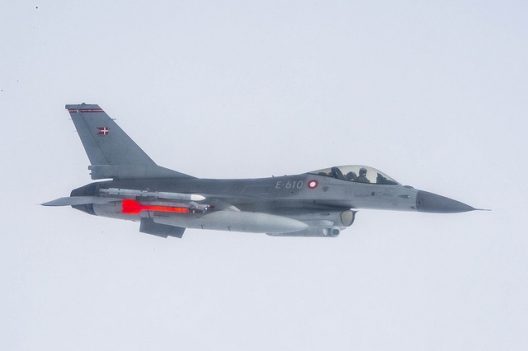 Shortly before 1pm local time on Tuesday, a Russian spy plane flew briefly into Estonian air space in what Nato officials see as the first serious violation of a Nato state’s aerial sovereignty since the fall of the Berlin Wall.
Shortly before 1pm local time on Tuesday, a Russian spy plane flew briefly into Estonian air space in what Nato officials see as the first serious violation of a Nato state’s aerial sovereignty since the fall of the Berlin Wall.
There has been a threefold increase in the number of scrambles Nato fighters have had to make since January, compared with the whole of 2013, for example. Even non Nato states, such as Sweden and Finland, have reported a significant uptick in airspace incidents involving Russian aircraft.
“We have seen a big increase in operational tempo for us 24/7,” says Lieutenant-Colonel David Pletz, the most senior officer in the current Canadian deployment of six CF-18 fighter jets – part of the Nato Baltic air policing mission based at Šiauliai in Lithuania.
“From a Norad [North American Aerospace Defense Command] perspective we are used to working with the big [Russian] Tu-95 bears, or their long range bombers but here we are seeing a significant different part of the air force – the most modern, advanced fighters as well as electronics surveillance planes – this is considerably more dynamic. . . .”
In all, according to Nato officials, a significant sum has been earmarked for upgrading eastern European air bases in a demonstration of its commitment to the mission there: more than €150m has been allocated from Nato’s coffers, officials have told the Financial Times.
Runways have been extended and resurfaced, new hangars built and larger ammunition and fuel depots installed.In Estonia, €40m has been spent on Ämari air base. In Latvia, €42m has gone on upgrading Lielvārde – a large fuel dump will be finished there next year. In Lithuania, 29 separate projects costing more than €41m have overhauled the airfield at Šiauliai, and in Poland, €17m has been spent on Malbork. . . .
The question is whether Nato’s muscular increase in the number of fighters it has patrolling eastern skies will do anything to curb growing Russian adventurism there. So far, it appears not to have done so.
As Nato officials prepare for a December meeting of foreign ministers of alliance states, they may decide to spend even more on the Baltic air policing mission – upgrading key communications and radar systems for example – than is being done currently.
Image: Danish F-16 taking part in Baltic Air Policing, May 9, 2014 (photo: NATO)
